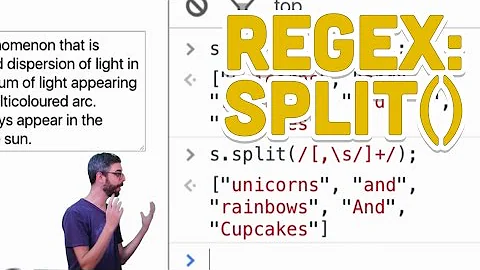Split files based on file content and pattern matching
Solution 1
This might work for you:
csplit -z -f 'temp' -b '%02d.txt' file /Rate/ {*}
This will produce files temp00.txt, temp01.txt...
If you only want the Rate line then;
sed -i '/Rate/!d' temp*.txt
Solution 2
I'd do this in perl:
#!/usr/bin/perl
use strict;
use warnings;
open (my $out, ">-") or die "oops";
while(<>)
{
if (m/^Rate: (\w+)/o)
{
close $out and open ($out, ">$1") or die "oops";
next;
}
print $out $_
}
Use it like
perl ./test.pl input.txt
Solution 3
(g)awk to the rescue:
awk '/^Rate:/ {output_file_name=$2; getline }
{ print $0 >> ( output_file_name ) }' INPUT_FILE
The first rule and command executes for the lines that starts with Rate: and only sets the output file name, then gets the next line from the input file. Then this next line is processed and gets written to the output file. After that the next line is processed by only the second command (gets written to the output file), but only if it not matches Rate:.
NOTE: The above solution might fail if there is a section in the input file with two continuous lines of Rate:s, like this:
... DATA ...
Rate: GBP
Rate: CHF
... DATA ...
should do (assuming that the line numbers are not part of the original file).
HTH
Solution 4
A one-liner inspired by sehe's answer:
>perl -pwe '
> if (/^Rate: (.+)/) {
> open $out, ">", "Rate_$1.txt" or die $!;
> select $out;
> }' gasdata.txt
The -p option will read a line and print it after the code in -e is evaluated. select will choose a default filehandle for print. So, basically, what we are doing is simply juggling the filehandle around, depending on which Rate is currently the active one.
Here's the code deparsed:
>perl -MO=Deparse -pwe 'if (/^Rate: (.+)/) { open $out, ">", "output/Rate_$1.txt" or die $!; select $out; }' gasdata.txt
BEGIN { $^W = 1; }
LINE: while (defined($_ = <ARGV>)) {
if (/^Rate: (.+)/) {
die $! unless open $out, '>', "output/Rate_$1.txt";
select $out;
}
}
continue {
die "-p destination: $!\n" unless print $_;
}
-e syntax OK
Solution 5
Another solution: It just makes your input file into a script and then runs it:
sed 's/^Rate:/cat <<EOF >/; 1!s/^cat <<EOF/EOF\n&/; $aEOF' input.txt | bash
I assumed the line numbers are not part of the file.
Related videos on Youtube
Dean
Updated on June 04, 2022Comments
-
 Dean 6 months
Dean 6 monthsI need your help with formate a txt file using bash/linux. The file looks like the following, it always has a line called Rate: Sth then it follows with the details in the very specific format. I'd like to split the file up with one rate for each file. In this example, I'd like to have 3 file, and each has the corresponding line says what the Rate value was.
How will you approach this?
line No. Main Text 1 Rate: GBP 2 12/01/1999,90.5911501,Validated ..... ..... 210 18/01/1999,90.954996,Validated 211 Rate: RMB 212 24/04/2008,132.2542,Validated ..... 1000 25/04/2008,132.2279,Validated 1001 28/04/2008,131.69915,Validated 1002 Rate: USD 1003 21/11/11,-0.004419534,Validated -
 JRFerguson almost 11 yearsClever first open to allow succinct loop. Very nice.
JRFerguson almost 11 yearsClever first open to allow succinct loop. Very nice. -
 jaypal singh almost 11 yearsWont this only get one line after your matched pattern?
jaypal singh almost 11 yearsWont this only get one line after your matched pattern? -
 TLP almost 11 years+1 for inspiring answer. See my answer for the one-liner version of your idea.
TLP almost 11 years+1 for inspiring answer. See my answer for the one-liner version of your idea. -
 jaypal singh almost 11 yearsThanks Zsolt for the explanation. Don't know why, but I am still having issues running the one-liner. Shouldn't the
jaypal singh almost 11 yearsThanks Zsolt for the explanation. Don't know why, but I am still having issues running the one-liner. Shouldn't theprint $0 >> output_file_namehave"around theoutput_file_name -
 potong almost 11 yearsI like this solution! Especially the way you use the rate's text to name the file. A small quibble but may save a few hairs - here documents will interpolate variables etc by default
potong almost 11 yearsI like this solution! Especially the way you use the rate's text to name the file. A small quibble but may save a few hairs - here documents will interpolate variables etc by defaults/^Rate:/cat <<\\EOF >/will turn it off. -
 potong almost 11 yearsA small tweak and you can have the
potong almost 11 yearsA small tweak and you can have theRate...line too./^Rate:/{h;s//.../;G};

